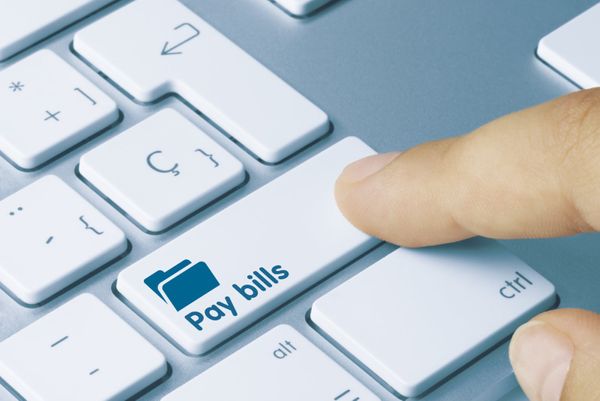Starting the process is important, but having the discipline to stick to that budget is key to success.
Let's be honest – budgeting isn’t fun. Nobody wants to be told that they can’t take that vacation, or that they shouldn’t go out to eat, or that they shouldn’t buy that new pair of shoes.
But the results you see from budgeting will make it all worth it, especially if you've fallen into debt. This boring process can feel rewarding once you start to reap the benefits, both financially and mentally, that creating a budget (and sticking to it) can bring to your life.
Budgeting isn’t as simple as spending less, or watching what you spend. There’s a science behind it that makes it one of the single-most effective financial decisions you can make in your entire life.
Budgeting Is Easier With A Goal
You need to make sure you have some clear financial goals in mind. By identifying the reasons why you want to start a budget, you will have more motivation to follow through with the process in the long run – and having a milestone will help you measure your progress.
Most people find it effective to identify at least one long-term and one short-term goal. The more specific your goals, the better. “I want to save more.” is difficult to measure progress against, while “I want to have $2,500 saved up in 6 months" makes it easy to determine your success.
Some of the more common budgeting goals can include: getting out of credit card debt, saving up for a vacation, paying off student loans, creating an emergency fund of a specific size, and the ability to put more money away towards retirement.
How Do You Start a Budget?
One of the hardest parts is having the discipline to live within the budget that you’ve set, so it is wise to ease into it. The last thing you want to do is get frustrated early on, give up, and never try to budget again in the future.
What Is Your Income?
The very first step you need to take should be to have a better understanding of your exact income. Get out a bank statement, a check stub, or log into your employer’s HR portal to see exactly what your take home pay is. Remember to also include any other sources of income, if you have any. The goal is to come up with the total amount of income you earn every single month.
What Are Your Essential Monthly Expenses?
This is the stuff that’s truly mandatory. Here are some of the common mandatory recurring monthly expenses that you may have:
- Mortgage or rent payments
- Car payments or transportation costs.
- Utilities (electricity, water, gas, cell phone bill, internet)
- Insurance (health, car, life, homeowners)
- Child care expenses
- Groceries
- Monthly debt payment obligations (credit card bills, student loan payments, etc..)
What Are Your Non-Essential Monthly Expenses?
Do you get coffee on the way to work every morning? Do you treat yourself to dinner and a movie every Saturday? Do you have subscriptions to streaming services? All of these count as non-essential expenses.
Also included in this total should be your irregular expenses. Sure, you might not get fast food on a regular basis, but look at it on a quarterly basis (add up all your expenses for three months and divide by three) and you'll probably be able to estimate an average monthly expense.
You Need To Also Be Saving Something
Outside of whatever it is you’re budgeting for, you need to be putting money away (into a savings account or investment account) and not spending it. If you’re budgeting to save for a vacation, have two separate accounts. One for the vacation fund, and one that you simply save.
How Do Your Expenses Compare With Your Income?
Now that you have properly tallied up all of the figures, it's time to see where you stand. Are you spending more than you make? If so, you’re likely already deep in credit card debt. If you’re spending less than you earn, is the difference enough to achieve your short-term or long-term goals? Often, the process of creating your budget does more help for you than the actual budget itself.
50-30-20 The Best Budget For Almost Anyone
“What’s the best way to budget for beginners?” Unfortunately, there is no one-size-fits-all answer to this question. But one of the more common budgets people use, the 50-30-20 budget, is a great approach for most people.
Even if this budget doesn’t perfectly fall in line with your income and lifestyle, it should still give you a basic understanding of how a budget should be. Here’s how we break it down:
50% Must-Haves
Half of your income should be allocated to monthly expenses that are absolutely mandatory. Mortgage or rent, car note, insurance payments, credit card bills, groceries, child care expenses, etc.. This is for items and services that you either cannot live without or have an obligation to pay on.
30% Wants
A little less than 1/3rd of your income, and not a penny more, should be allocated to wants. This can be your morning coffee ritual, or going to happy hour with coworkers, or even your Apple Music or Hulu subscriptions.
20% Savings : The rest should go towards savings. Keep in mind that while the "Wants" percentage is 30% maximum, the savings percentage is 20% minimum. For every $500 you bring home, at least $100 should be saved.
If you have any wiggle room in the Must-Haves category, don’t put the rest into buying your wants, set it aside and save it. This helps you better achieve your goal. And, remember, the whole point of budgeting is to meet or exceed your long-term and short-term goals.
3 Tips To Properly Fine Tune Your Budget
You like the 50-30-20 method but maybe your income just can’t sustain that model. Or maybe you’re too deep into debt to allocate 50% or less to your Must-Haves. Remember, there’s always room to save money and fine tune your budget.
Even if the 50-30-20 method works just fine for your income and lifestyle, it doesn’t hurt to go out of your way to try and save more money. Here are a few money-saving tips that work great for anyone.
Use A Budgeting or Finance App
One of the easiest ways to keep track of your income and spending is by using one of the more popular apps that will do all of the leg work for you. These apps will usually automatically connect to you bank accounts and credit cards and instantly spit out figures that show you how much you’ve got coming in, and how much you’ve got going out. They will even categorize your spending for you and tell you what percentage of your income goes to which different services or merchants. (ex: 18% of your income this month was spent at Walmart)
Here are the best budgeting apps:
Learn To Cut Corners Where Possible
How much do you spend on Cable TV? Do you get a majority of your entertainment from certain channels or can you afford to switch over to a streaming service instead? Multiple streaming services may be cheaper than most cable TV plans.
Cooking, rather than eating out, can likely save you thousands of dollars per year. Eating out is convenient, but cooking is much cheaper and generally significantly healthier. If you already cook your own meals, have you considered buying in bulk and meal prepping?
Pick Up A Side Hustle
There are plenty of ways out there to make extra money, regardless of whether or not you have any marketable skills. This might be a part time job you work on the weekends or in the evening while you get your budget balanced out. Or, it might be doing some sort of gig economy work, such as Uber or Doordash.
You Need Discipline For Your Budget To Work!
The most important parts of budgeting is not just starting the process, but having the discipline to stick to that budget. What good is a budget if you don’t actually follow it? Sure, it’s nice to write out your finances and see how your money is being spent, but none of that data matters if you aren’t actively working towards improving it. Be consistent, take control, and everything else will fall into place!






